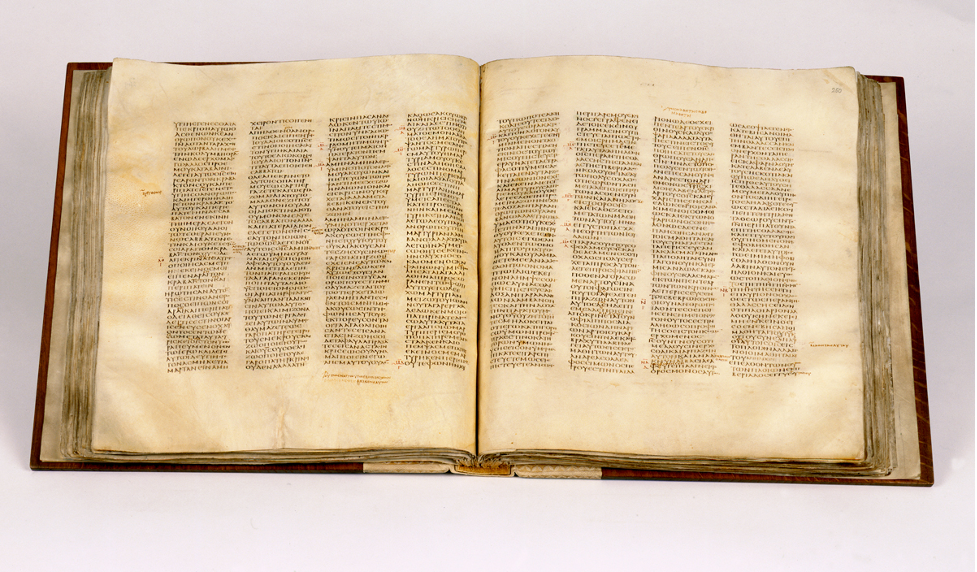The Canon
What is the Canon?
- “Canon” means a “rule” or standard against which something is judged or measure
- The term came to mean an authoritative listing of books or works.
- The Protestant “Canon” contains sixty-six books.
- The “Protestant” Canon of the OT is simply the Jewish canon without the addition of the Apocryphal books.
The Issue of the Canon
Objection
If you say that scripture alone is the sole infallible rule of faith for the church then how do you define what books are included in the canon in the first place? It is in fact the church that defines the canon, therefore you are putting your faith in something outside of the scriptures for your faith.
Objection Answered
Canon as an Artifact, Not an Object, of Revelation
God creates canon by inspiring some writings and not others. Canon, then, is a part of revelation itself. It is an artifact of revelation, not an object of revelation itself. It is not an object of Revelation itself, meaning God did not give a separate, inspired list of which books are in the Bible. As soon as God inspires a writing, the canon comes into existence.
Example
The example that James White makes is that the canon of the books he wrote is a revealed knowledge. As soon as he wrote his first book, the canon of the “books of James White” came into existence. There was no need for someone to write a document titled, “The canon of James White.” And once he wrote more books, the canon was expanded accordingly. Now there does exist a page on the website managed by James White where he lists the books that he wrote. That page does not have to exist for the canon of his writings to exist. The canon comes into existence by the fact that he wrote something.
James White is the only only one who infallibly knows his canon. Why? Because he is the one who wrote it. So the Canon is then a part of revelation itself - an artifact of it; not the object of it.
Man’s Role is Recognition, Not Creation
Therefore, man or the church does not create canon, but seeks to recognize it. Man’s knowledge of the canon is passive, not active. For example, when you are learning something, you are passively taking in knowledge; when you define something, you’re actively doing something that creates at item of knowledge. Councils didn’t vote books into the canon; the church receives the canon. This recognition is acknowledging that the church is led by God’s Spirit over time and beyond geographical boundaries.
Disputes about the canon do not in any way destroy the existence of the canon, anymore than doctrinal disputes prove there is no objective revelation of doctrinal truth.
What About the Apocrypha Books?
When we do look at historical books on this subject (Shepherd of Hermas, Gospel of Barnabas, Didache), there are seemingly viewed as Scripture, as canon in limited geographical areas. but never across the Christian world. Hence, why it is almost always a dead giveaway that those books are most popular where originated and when they go outside the area where they originated they are unanimously rejected.
The Definition from Authority
If you say that you need the church to give you the canon, and that it needs to be dogmatically defined then you are left with the fact that the Roman Catholic Church did not issue a dogmatic definition of the canon of Scripture until April 1546 at the Council of Trent, and therefore did not know what the Scriptures were.
Furthermore, if you rest on the authority of the church, by what means can you say that the Mormonism are wrong? The same argument that the Roman Catholic use in saying that they are the one true church is the same one that the Mormons use.
The “White Question”
The “white question” came into existence after the question posed by James White during a radio program with Gerry Matatics in 1993.
The question was: “How is it that a believing Jewish person 50 years before the coming of Christ could know that Isaiah and 2 Chronicles were scripture?”
This demonstrates the problematic nature of the Roman Catholic perspective on the canon, as there is no consistent answer from that viewpoint. It implies that the canon was known through a process that did not require extra-canonical revelation or an infallible church definition, and that man’s knowledge of the canon is passive (recognizing what God has inspired) rather than active (creating or defining what is canon).
